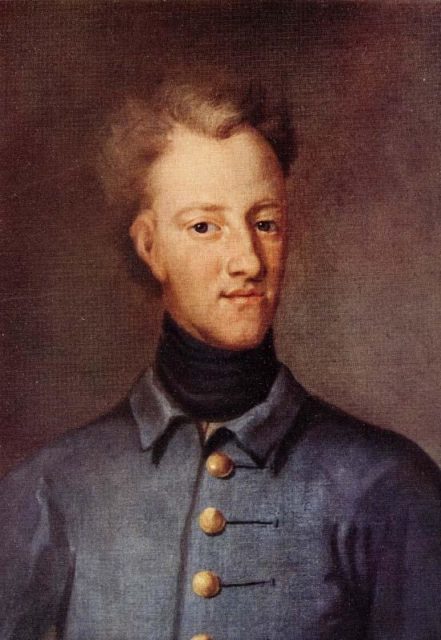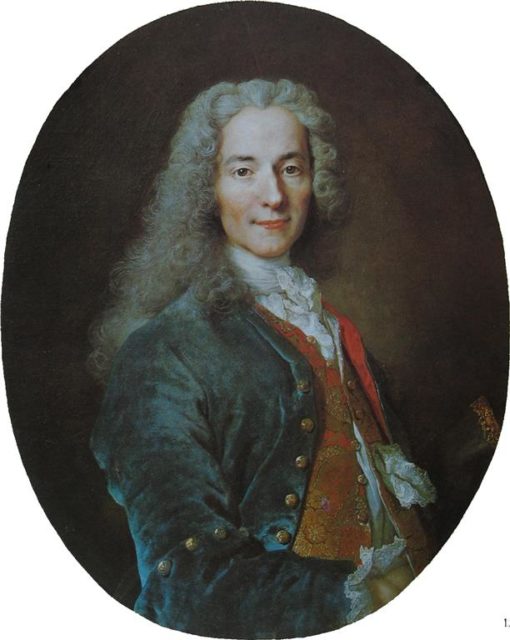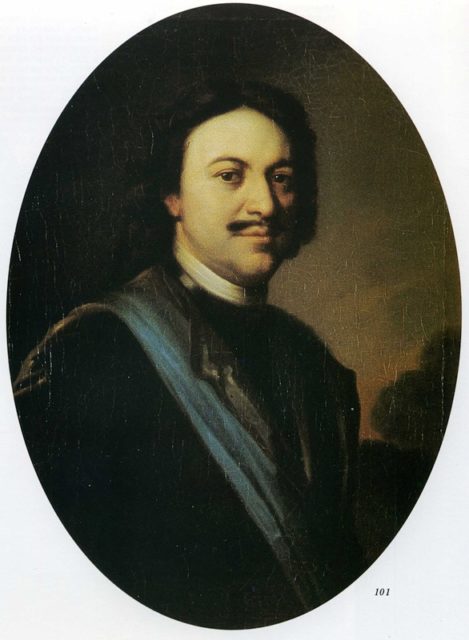War History Online presents this guest blog by Benjamin Phelps
Those who recognize the name of Charles XII of Sweden often only remember him as the ill-fated nemesis and contemporary of Peter the Great of Russia. As Peter the Great rose, so did the Russian Empire. As Charles XII fell, so did the Swedish Empire. This was the empire which was chiefly created by Gustavus Adolphus when he brought his army to continental Europe in the Thirty Years War. By the end of this war, Sweden had gained the title of a major power and prestige as the invincible champion of the Protestant cause for the remainder of the 17th century.
Less than a century later, at the end of the Great Northern War (1700-1721), this image was permanently shattered. Charles’s armies were stretched to the breaking point, his navy was powerless, his Baltic possessions were lost to Russia and most of his German lands gobbled up by either Prussia or Hanover.
What was Charles’ role in the fall of the empire? He was certainly a skilled and brave soldier, even seemingly careless with his life on the battlefield. Did Charles do all, and even more, than what could be expected of him? Were two decades of intense warfare (fighting at one time or another, Denmark, Saxony, Poland, Russia, Hanover, Prussia and Britain) without significant allies too much for nation with a relatively small population and limited resources? Was Charles’ refusal to sacrifice territory for peace arrogant foolishness, or part of a realistic and practical diplomatic policy only fully known to him? These questions have been heavily debated, yet to answer them satisfactorily; one must understand Charles XII as an individual.
To see what qualities make up a king his character must be understood. Christians will naturally want to look at a person’s mindset and faith to determine, as humanly possible, what sort of relationship with God existed. The monarchs of Sweden have been nominally Lutheran since the Reformation, but what did “Lutheran” mean to Charles, to his parents, to his advisors and to his companions? These questions are key to understanding the man. They are in fact the key.

For this reason this essay will focus on what the historians have said concerning Charles’ character and his faith. Historians have discussed Charles XII for centuries—from Voltaire to the present. This historiographical essay will examine the views of only three biographers from three different centuries and countries on Charles XII of Sweden. Their works naturally have unique perspectives on Charles XII and are worth examining; both individually and in detail.
Voltaire: Charles XII was the Bravest of the Brave
The French philosopher François-Marie Arouet (1694-1778), known simply as Voltaire, was a prolific and prominent writer of the Enlightenment. He chooses to write his history of Charles, The Lion of the North, so that it may be read by the princes and rulers of Europe and by doing so they will learn to avoid war. Voltaire states, “There is assuredly no sovereign who, on reading the life of Charles XII, must not be cured of the rage to conquer. For where is the monarch who can say, ‘I am braver and more virtuous than Charles XII?’”.

He was fortunate to be able to see original documents as well as interview many people, mainly French diplomats, who interacted with Charles. Ever the promoter of the Enlightenment, Voltaire is more impressed with reformer Peter the Great than with warrior-king Charles XII, who Voltaire compares to Alexander the Great. Voltaire believes that Charles was one of the greatest military commanders of all time because he possessed outstanding mental, physical and national resources. If this is the case, Voltaire argues, then every ruler should refrain from conquest, “For if, despite all these advantages and after so many victories, that king was so ill-fated, what ought to be the expectations of other princes, of equal ambition but lesser talents and resources?”.
Voltaire was fortunate to have many primary sources at his immediate disposal. Voltaire wrote his history of Charles XII in 1731, a mere ten years after the end of the Great Northern War. Many men who knew Charles personally were alive and well. These mainly were French ambassadors and soldiers who fought in foreign armies, but these sources also included others such as the Polish soldier in Swedish service, Stanisław Poniatowski. Voltaire also had some access to diplomatic documents and letters by means of his friendship with many diplomats in governments in Europe.
While Voltaire used his access to many vital sources, he was also limited by the recentness of the events he writes about. The War of Spanish Succession (1701-1714) had been going on simultaneously as the Great Northern War for fourteen long years. Being a Frenchman and an admirer of Louis XIV, Voltaire had the difficult task of objectively cutting through the diplomatic politics of France and the powers of the Great Alliance, who both had motivations for supporting or inhibiting Swedish ambitions. For this reason Voltaire must be read with caution, as his primary sources were mainly French.
Voltaire is also biased in his political view of Charles XII and the Kingdom of Sweden. As Voltaire is one of the foremost philosophers of the Enlightenment, he cannot be reconciled to absolute monarchs who are not at least enlightened despots. He frequently compares Charles XII and his adversary Peter the Great. Voltaire praises both, but there is no doubt as to who the favorite is,
The decisive Battle of Poltava was fought by the two most remarkable monarchs then living: Charles XII, illustrious for nine years of victories, and Peter Alexeevich [Peter the Great], famous for nine years of painstaking efforts to train troops who could match the Swedes; the former glorious for giving kingdoms away, the latter for civilizing his own…Charles was styled “the Invincible”…the nations had already given Peter Alexeevich the name of “Great”.

One could say that while Voltaire was impressed with Charles’ military skill and personal bravery, he did not help his nation as Peter did through reform.
Voltaire’s deistic religious views also put him at odds with the Lutheranism of Charles and Sweden and he treats it with thinly masked hostility. When it is encountered, Voltaire does not attempt to understand it, but simply views it through the lens of his philosophy. Voltaire states that Charles was religious for mainly practical reasons, not because he possessed a personal faith. He used religion as a tool of discipline, “Prayers were always said in his camp twice a day, at 7:00 A.M. and at 4:00 P.M.; [Charles] never failed to attend and set his soldiers an example of piety”. When Charles acted in his role of protector of the Lutherans in Austrian Silesia by requesting that received their rights due to them by the Treaty of Westphalia, Voltaire states that this demand was, “the most outrageous” as it was done out of spite for the Austrian Emperor (110).
Voltaire is of the opinion that Charles may have been a sincere Lutheran until 1707, or a few years later when he was in the Ottoman Empire. All that Charles still held to later in life was a belief in “absolute predestination,” but is unclear exactly what Voltaire means by that term. Voltaire does not include many more statements on Charles’ religious beliefs since Voltaire does not consider religion to be important to writing a biography, “A sovereign’s [religious] sentiments ought not to influence other men…the opinion of a monarch, unschooled as Charles, is of no consequence in these matters”.
Author: Benjamin Phelps
Bain, Robert Nisbet. Charles XII and the Collapse of the Swedish Empire. New York: G.P. Putnam’s Sons, 1895.
Hatton, Ragnhild Marie. Charles XII of Sweden. New York: Weybright and Talley, 1968.
Voltaire. Lion of the North. Trans. M.F.O. Jenkins. East Brunswick: Associated University Presses, Inc., 1981.
